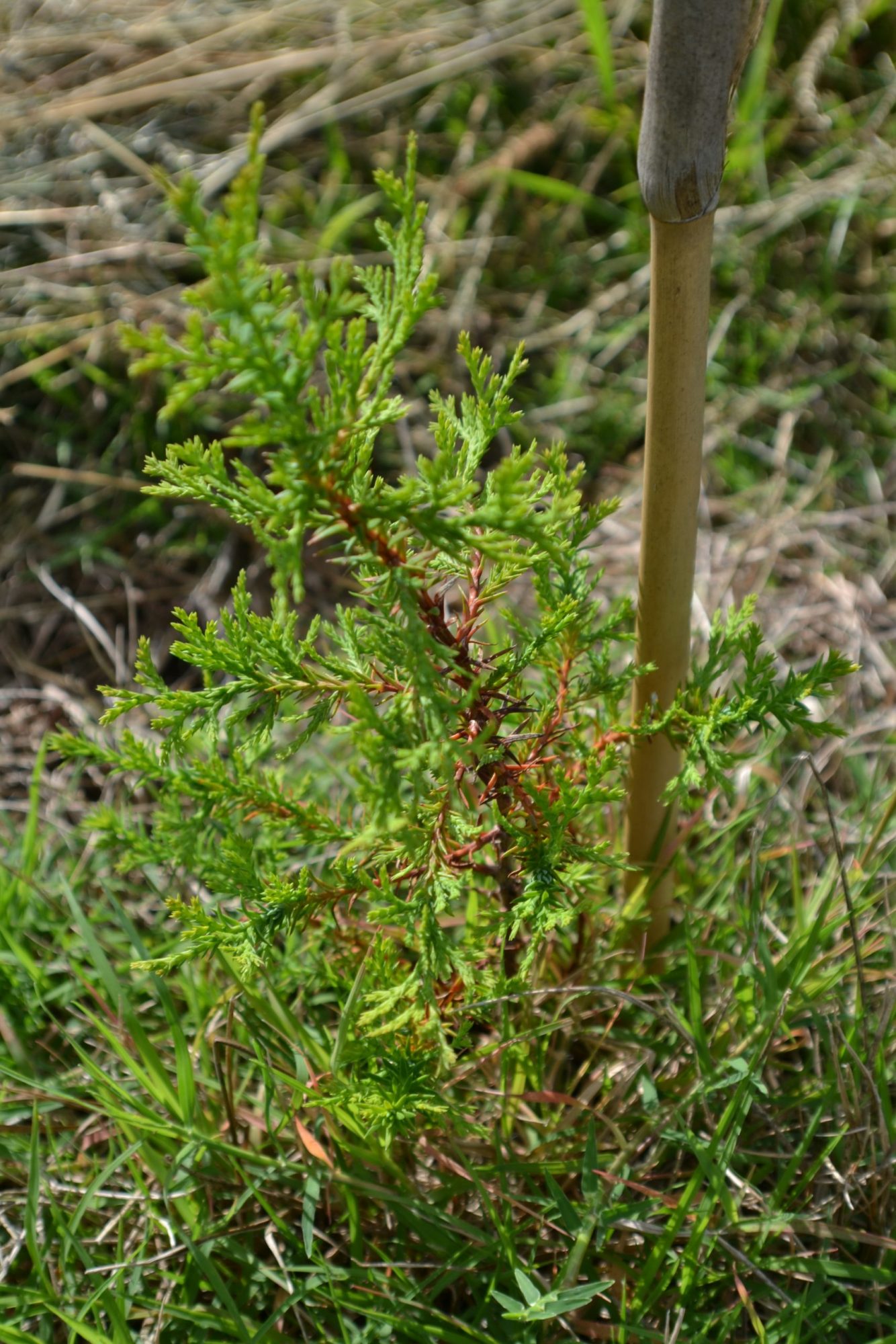
Young Atlantic White Cedar
Formerly, Atlantic white-cedar was a well-established ecosystem in the peatlands along the Alligator River and in the Great Dismal Swamp. The trees thrived in the waterlogged, peat-rich soil, which is made up of partially decayed plant material. However, in the 1700s these lands were ditched and drained for timber and access. Ultimately, many of these acres were converted for farming. All of these land use changes made conditions unsuitable for juniper.
Through this restoration project, the federation and USFWS partnered with private landowners with appropriate soils to plant juniper on their property. The federation and USFWS provided technical and financial assistance to interested qualifying property owners though cost-share agreements. Ultimately, the project spanned four planting projects over 8 years, from 2012 to 2020.
“We’re excited to see this important habitat being restored along the coast and hope that more acres of juniper can be planted in the future,” said Erin Fleckenstein, coastal scientist and regional manager with the federation. “Cost-sharing through the Fish and Wildlife Service’s Partners program was a great way to engage with private landowners to plant these majestic trees.”
The project was capped off with a final planting at North River Wetlands Preserve on December 4, 2020. During this final planting, 455 trees were planted, 30 of which were donated by Atlantic White Cedar Conservation, LLC, covering 1.5 acres of the property.
Over the course of the project, plantings were also completed at the Waccamaw River Preserve in Columbus County in partnership with the NC Coastal Land Trust; the Wysocking Wildlife Sanctuary in Hyde County and a private property in Hyde County. The plantings encompassed by this project have restored not just the trees, but also valuable habitat for birds and other wildlife.
For more information on this project, visit our webpage at https://www.nccoast.org/project/atlantic-white-cedar-restoration/.
